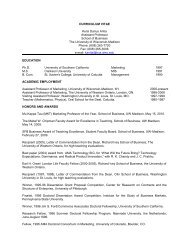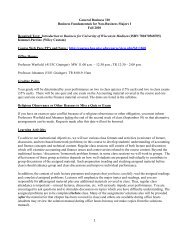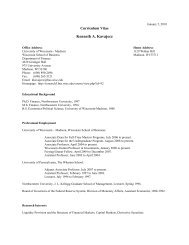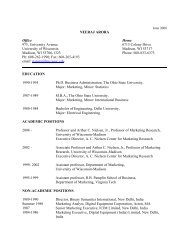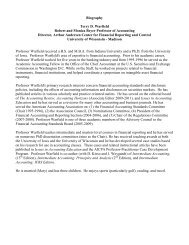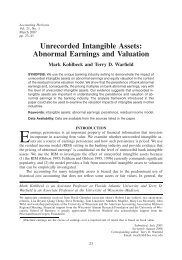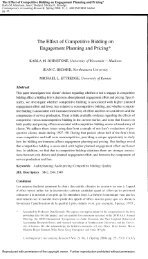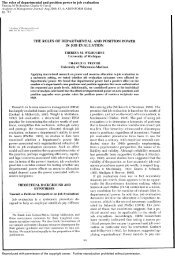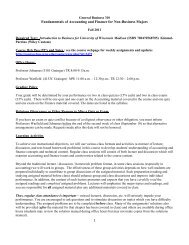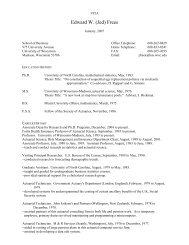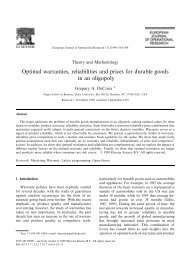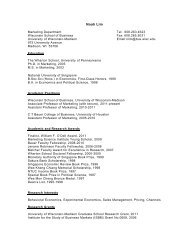family legacies - Wisconsin School of Business - University of ...
family legacies - Wisconsin School of Business - University of ...
family legacies - Wisconsin School of Business - University of ...
You also want an ePaper? Increase the reach of your titles
YUMPU automatically turns print PDFs into web optimized ePapers that Google loves.
Family Legacies<br />
period when individuals begin to start thinking about beginning their own families (Arnett,<br />
2007).<br />
In addition to the context associated with the storytelling process, the content <strong>of</strong> the<br />
<strong>family</strong> <strong>legacies</strong> became essential in the construction <strong>of</strong> third generation <strong>family</strong> members’<br />
individual and <strong>family</strong> identities, illustrating the complementary nature <strong>of</strong> narrative approaches to<br />
identity (Freeman, 2006). Not surprisingly, families identified more positive <strong>legacies</strong> than<br />
negative <strong>legacies</strong> since <strong>family</strong> is one <strong>of</strong> the central institutions <strong>of</strong> a culture. Consistent with our<br />
findings, researchers have found that emerging adults construct more emotionally positive stories<br />
(McAdams et. al., 2006). One <strong>of</strong> the common threads within the positive <strong>legacies</strong> third<br />
generation <strong>family</strong> members reported was that each tended to reflect Midwestern cultural norms<br />
as the patterns portrayed families as hardworking, cohesive, and helpful to members outside <strong>of</strong><br />
the <strong>family</strong>. The emergence <strong>of</strong> these overarching <strong>legacies</strong> should not be surprising as they reflect<br />
both <strong>family</strong> and cultural identity (Archakis & Tzanne, 2005; Bamberg, 2004; Langellier &<br />
Peterson, 2004, May, 2004; Nelson, 2004). Based on these findings, it can be argued that socio-<br />
cultural discourses require the production <strong>of</strong> particular identities and that narratives represent one<br />
way this process occurs as individuals shape <strong>family</strong> narratives or <strong>legacies</strong> to perform certain<br />
cultural aspects <strong>of</strong> identity.<br />
Conversely, negative <strong>legacies</strong> were more idiosyncratic. In a few cases, participants were<br />
unable to identify negative <strong>family</strong> <strong>legacies</strong>. Moreover, participants struggled to remember or<br />
identify stories which illustrated negative themes within their <strong>family</strong>. One possible reason no<br />
overarching themes emerged for negative <strong>legacies</strong> is that they do not conform to Midwestern<br />
cultural views <strong>of</strong> the <strong>family</strong>. In other words, the third generation <strong>family</strong> members in our study<br />
were constrained by the importance placed on <strong>family</strong>, specifically portraying the <strong>family</strong> as a<br />
33



